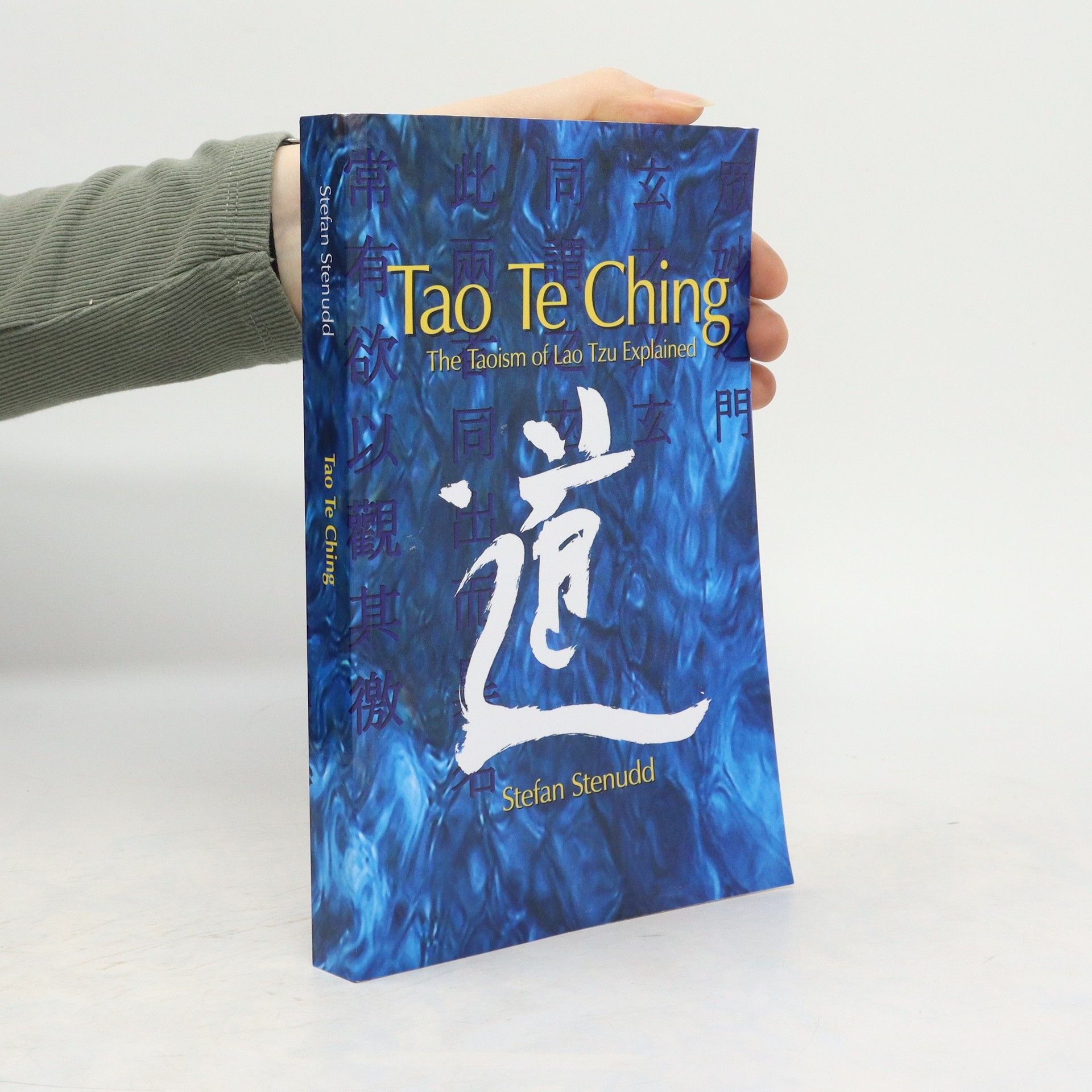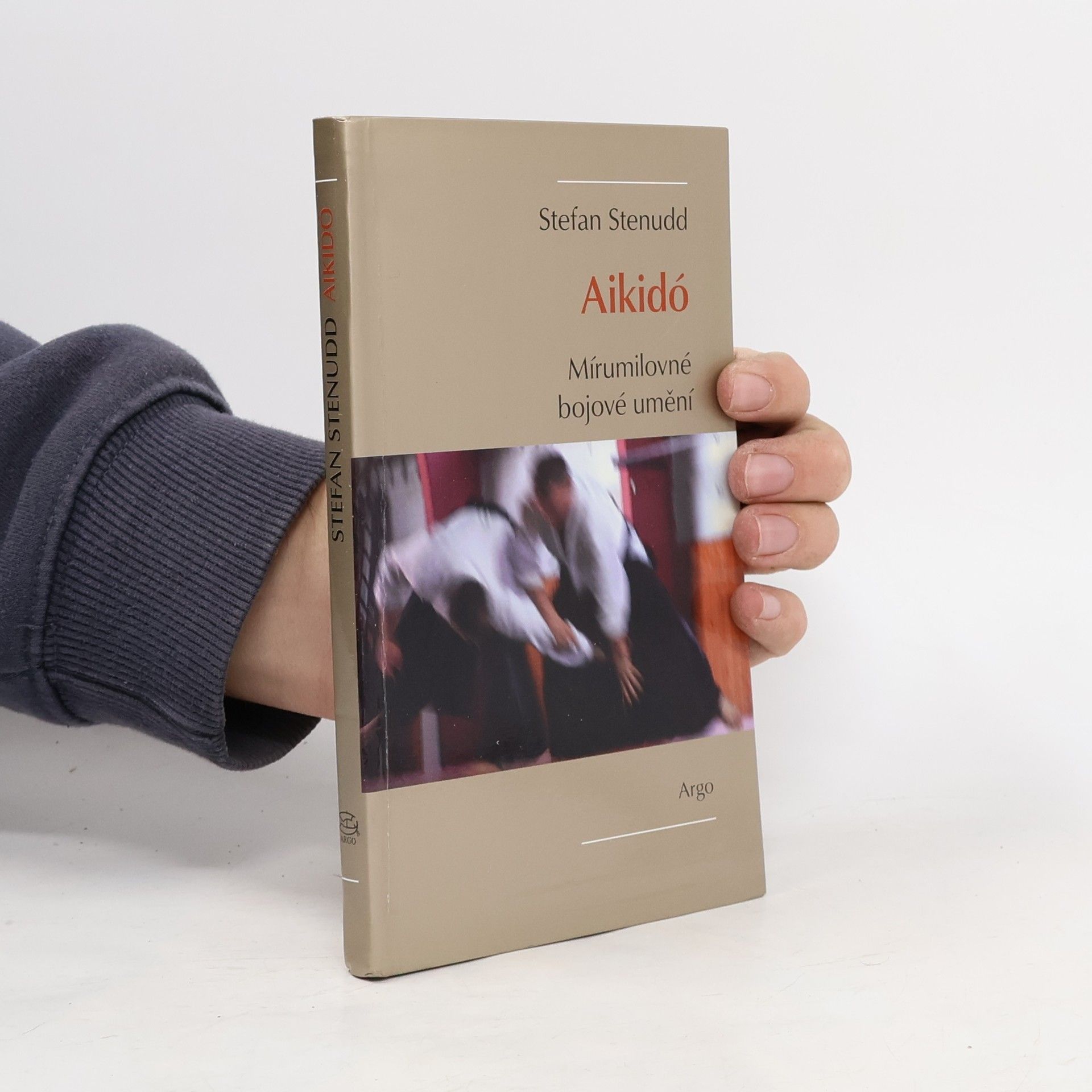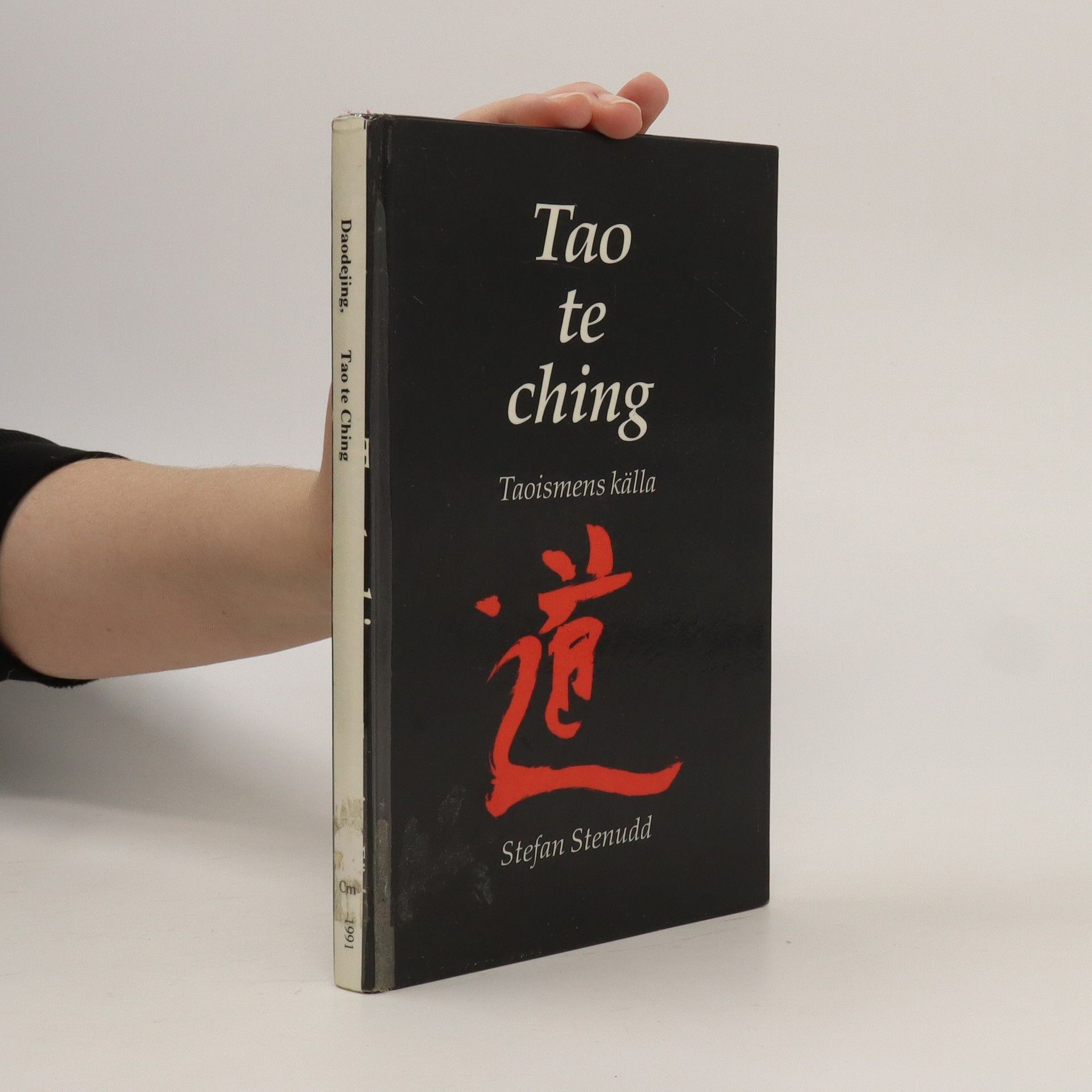Tao Te Ching is the 2,500 years old source to Taoism, written by the legendary Taoist philosopher Lao Tzu. In 81 short chapters, he presented the world according to Tao, the Way, and how mankind should adapt to it. The book has become one of the foremost world classics of wisdom - maybe even more relevant today, than it was to Lao Tzu's contemporaries. This translation of the text focuses on the clarity and simplicity by which Lao Tzu expresses his fascinating cosmology and profound ethics. Each chapter is thoroughly explained, also regarding how this old wisdom can be understood and applied today. Stefan Stenudd is a Swedish writer of both fiction and non-fiction. As a historian of ideas, he studies the thought patterns in creation myths around the world. He is also a high-grade instructor of the peaceful martial art aikido, which he has practiced for almost 40 years.
Stefan Stenudd Livres







Archetypes of Mythology: Jungian Theories on Myth and Religion Examined
- 484pages
- 17 heures de lecture
Carl G. Jung broke with Sigmund Freud to develop his own form of analytical psychology, based on the ideas of the archetypes and the collective unconscious. He also found those concepts exhibited in myth and religion. Jung got a number of followers, some quite illustrious, such as Joseph Campbell and recently Jordan B. Peterson. This book presents and critically examines the imaginative theories of Jung and the Jungians about mythology and religion, as expressed in their own texts. Although discredited within psychology, these ideas have had a considerable influence on art, literature, New Age esotericism, and movie-making. Still, they can and should be questioned. Stefan Stenudd is a Swedish author and historian of ideas. Within the history of ideas he researches thought patterns in creation myths, as well as theories about mythology through history.
Psychoanalysis of Mythology
Freudian Theories on Myth and Religion Examined
- 234pages
- 9 heures de lecture
Exploring the intersection of psychology and mythology, this work delves into Sigmund Freud's theories and those of his followers regarding the origins and purposes of myths and religion. It provides a critical examination of their ideas as articulated in their writings, offering insights into how psychoanalysis interprets these cultural phenomena. The analysis highlights the influence of psychological concepts on the understanding of religious beliefs and mythological narratives.
Exploring the authenticity of widely circulated quotes attributed to Lao Tzu, this book delves into 90 popular sayings, identifying many as forgeries. It provides a thorough examination of their origins, aiming to clarify misconceptions and uncover the true teachings of the legendary Taoist figure. By distinguishing between genuine and inauthentic quotes, it enriches readers' understanding of Tao Te Ching and Lao Tzu's philosophical insights.
Ever Young
- 340pages
- 12 heures de lecture
The story explores Caroline's traumatic experience as she witnesses her twin brother's death at a young age. This profound loss ignites a deep conviction within her that no one should endure such pain, shaping her perspective on life and mortality. The narrative delves into her emotional journey and the impact of grief on her identity and relationships.
Sunday Brunch with the World Maker
- 202pages
- 8 heures de lecture
During a lavish Sunday brunch at the Waldorf Astoria, the author engages in a conversation with a young stranger, initially sharing his own life experiences and reflections. As their dialogue unfolds, it hints at deeper themes of connection and introspection, exploring the dynamics between the two individuals and the insights that emerge from their interaction.
All's End
- 304pages
- 11 heures de lecture
A careless suburban teen, Christian Kalm, teams up with a sentient supernova that has gained a personality after encountering a psychoplasma cloud. Their cosmic journey takes them across the universe as they seek a perfect world where they can settle without regret. This adventure explores themes of identity, companionship, and the quest for belonging in a vast and often indifferent universe.
Carl G. Jung broke with Sigmund Freud to develop his own form of analytical psychology, based on the ideas of the archetypes and the collective unconscious. He also found those concepts exhibited in myth and religion. Jung got a number of followers, some quite illustrious, such as Joseph Campbell and recently Jordan B. Peterson. This book presents and critically examines the imaginative theories of Jung and the Jungians about mythology and religion, as expressed in their own texts. Although discredited within psychology, these ideas have had a considerable influence on art, literature, New Age esotericism, and movie-making. Still, they can and should be questioned.Stefan Stenudd is a Swedish author and historian of ideas. Within the history of ideas he researches thought patterns in creation myths, as well as theories about mythology through history.
Kniha "Aikido" není obrazový technický manuál, ale text o principech aikida. Stenudd je výborný učitel aikida a zároveň profesionální spisovatel, takže text je příjemně čitelný a srozumitelný, i když popisuje složitější či hlubší témata. Kniha je rozdělena na dvě části, v první se autor věnuje všeobecným principům a v druhé části rozebírá postupně konkrétní principy a jejich význam při tréninku - Do (cesta), Ki, Aiki, Tanden (centrum), Kiai, Kamae (postoj), Kokju (dýchání) a podobně.Stefan Stenudd (1954) je švédský učitel aikida, spisovatel, novinář a vydavatel. Aikido cvičí od roku 1972, je držitelem 6. danu aikido a 4. danu iaido a respektovaný evropský učitel. Je členem rady International Aikido Federation (IAF). Od roku 1991 vede i semináře v České republice.

